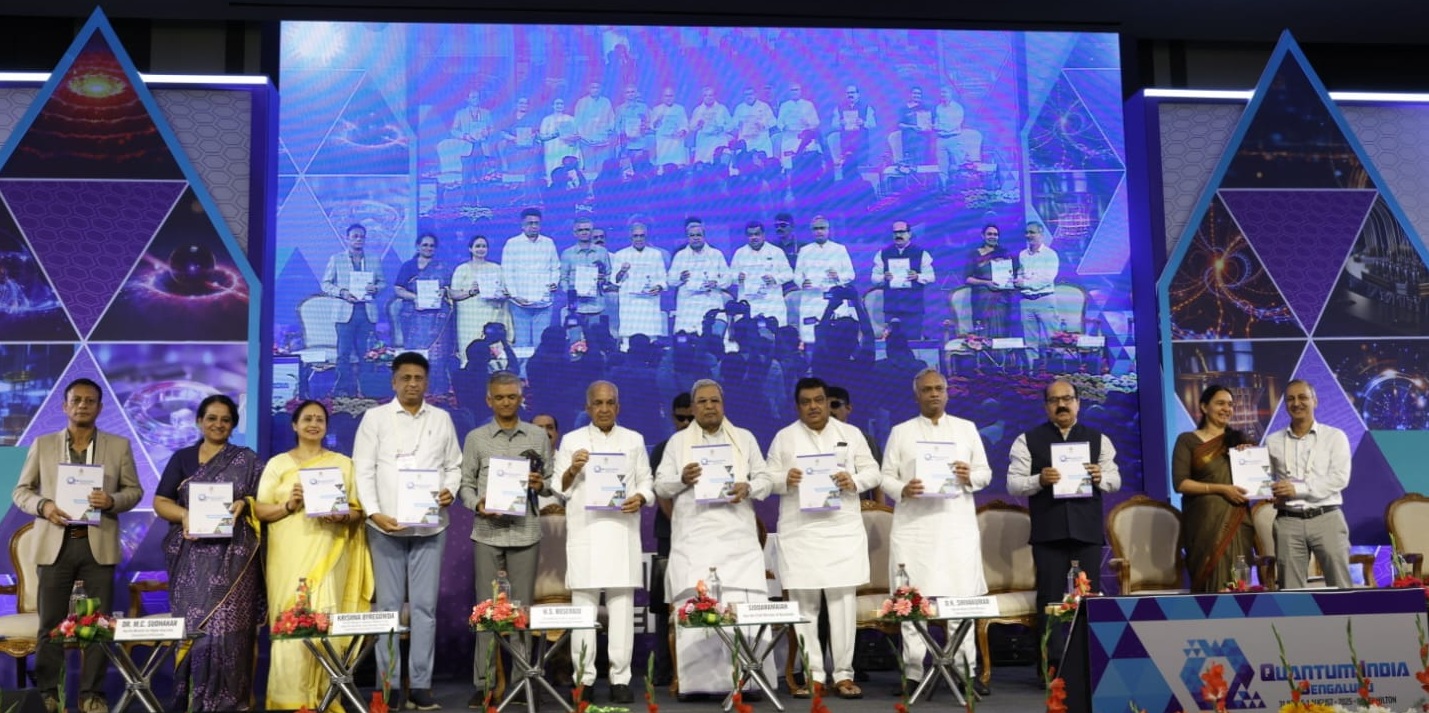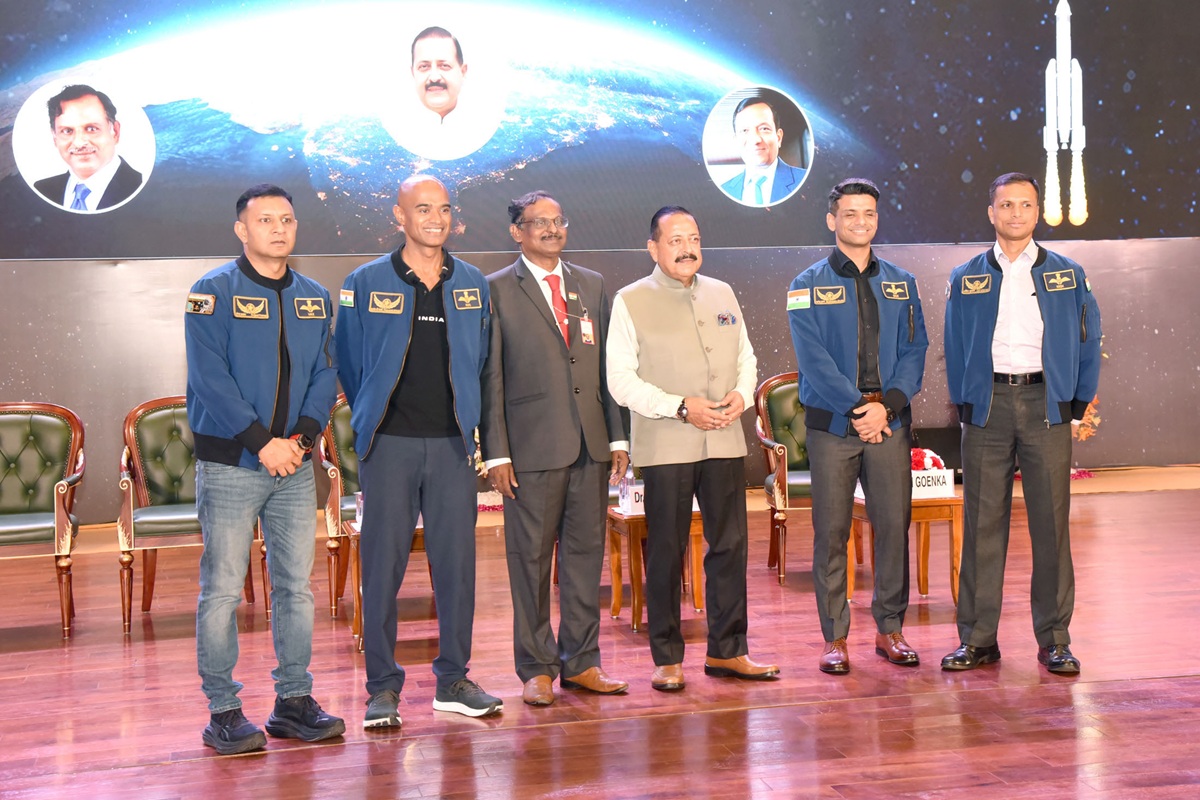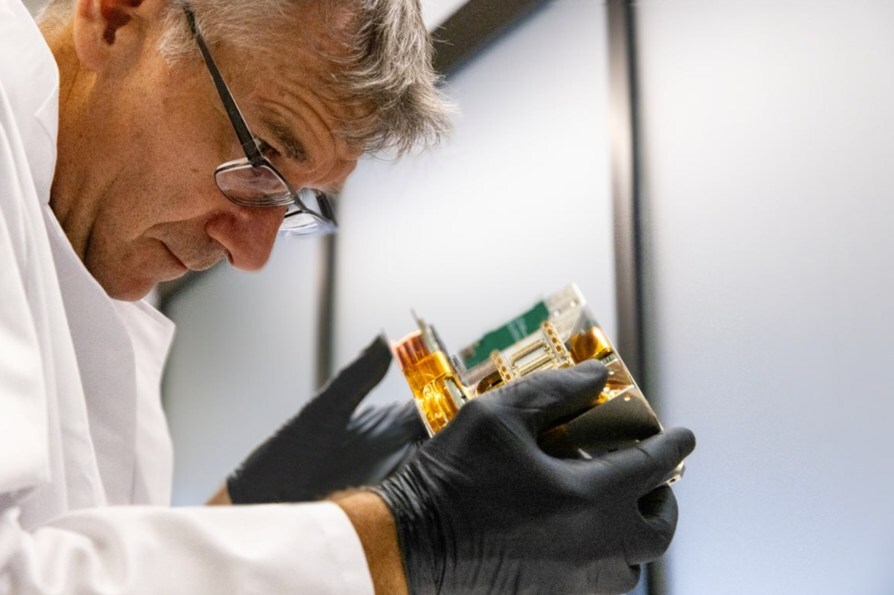On July 31, 2025, Bengaluru surged onto the world stage—not just as India’s tech capital, but as the nation’s quantum capital. With the curtain rising on the inaugural Quantum India Bengaluru Summit, the Government of Karnataka didn’t merely host a conference; it launched an audacious vision: a Strategic Quantum Roadmap that could redefine India’s future in space and secure the country’s place on the global quantum map.
Why Quantum Matters to Indian Space
Quantum technologies—rooted in the mind-bending rules of subatomic physics—promise to solve the unsolvable: simulate molecules for new materials, break current cryptographic codes, enable instantaneous, hack-proof communication, and process information at speeds conventional computers can’t dream of. For India’s space sector, these breakthroughs aren’t theoretical; they are the levers for next-generation satellites, resilient communications, secure navigation, and rapid mission planning.
Karnataka’s initiative, timed as the world enters what the UN calls the International Year of Quantum, is a deliberate bid: to anchor Indian space leadership not on old hardware or incremental advances, but on the leap into quantum.
The event has brought together Nobel Laureates, renowned researchers, industry stakeholders, policymakers, and quantum startups on a shared platform for the first time. Participants from various countries including Denmark, Australia, UK, USA, France, Germany, Netherlands, Israel and Switzerland were part of the event.
Organized by the Karnataka Science and Technology Promotion Society (KSTePS), Department of Science & Technology, Government of Karnataka, in collaboration with IISc Quantum Technology Initiative (IQTI), QIB 2025 aims to position India as a global leader in the Quantum Age.
A Roadmap Built for Impact
Unveiled at the summit by Chief Minister Siddaramaiah and an assembly of Nobel Laureates, international scientists, and industry stalwarts, the state’s roadmap is a playbook designed around five pillars:
- Talent: Infusing quantum science into education, from university to classroom, building the workforce that will design India’s quantum satellites and sensors.
- R&D: Accelerating blue-sky research and translating quantum discoveries to engineering for spacecraft and secure data links.
- Infrastructure: Investing in state-of-the-art hardware labs and Quantum Research Parks, including the landmark Phase-2 at IISc and a planned Quantum Hardware Zone tailored for companies creating cryostats and quantum chips—key parts for quantum sensors on satellites.
- Industry Enablement: Providing incentives and a plug-and-play ecosystem for indigenous startups and established firms to manufacture quantum technologies in Karnataka, reducing reliance on foreign components.
- Global Partnerships: Leveraging Bengaluru’s international connections to import best practices and attract top-tier researchers and investors.
Mr. Siddaramaiah, Chief Minister of Karnataka stated in his inaugural address, “Quantum technology represents a strategic frontier with the potential to fundamentally transform how global industries solve their most complex challenges. It is not just the future, it is the force that will redefine Karnataka’s capabilities in healthcare, education, energy, infrastructure, and cybersecurity. The Government of Karnataka is fully committed to positioning the state at the forefront of this quantum revolution. Our focus is on the indigenization of quantum technologies and on establishing Karnataka as a global exporter of quantum solutions, unlocking innovations that were once thought to be out of reach.”
Adding to this, Mr. D.K. Shivakumar, Deputy Chief Minister, expressed, “Quantum India Bengaluru reflects our deep commitment to shaping the future of science and technology. Karnataka is proud to be at the forefront of India’s quantum journey—bringing together global researchers, startups, investors, and institutions. We envision Bengaluru evolving into the world’s first ‘Quantum City,’ where research, talent, and industry converge. Our efforts begin in the classroom, with quantum education entering schools and universities to prepare the next generation. This revolution must be inclusive, and Karnataka is committed to building a robust ecosystem through research parks, startup hubs, and strong policy support.”
Mr. N.S. Boseraju, Minister for Minor Irrigation and Science & Technology, Government of Karnataka said, “It is indeed a privilege for Karnataka to host Quantum India Bengaluru 2025, in the International Year of Quantum, as declared by the United Nations. Under the guidance of our Hon’ble Chief Minister and Deputy Chief Minister, Karnataka is taking focused steps to build a future-ready quantum ecosystem. Our Quantum Roadmap outlines a clear, phased strategy. We are committed to supporting cutting-edge research, attracting world-class quantum companies and nurturing deep-tech startups through dedicated policies and funding. As India steps into the quantum age, Karnataka is proud to lead from the front.”
The Quantum Space Nexus: Why Bengaluru’s Move is Timely
India’s space sector stands at a crossroads. The country’s lunar and planetary missions, satellite constellations, and deep space networks demand ultra-secure communications and sensors capable of probing the cosmos with unprecedented sensitivity. Quantum devices—like single-photon detectors, quantum clocks, and quantum key distribution systems—are essential for these advances.
Karnataka’s roadmap recognizes that quantum isn’t a luxury but an imperative. By aiming to grow the state’s quantum economy to $20 billion by 2035, the government is betting that future ISRO launches, NewSpace ventures, and deep-space collaborations will be inseparable from quantum hardware, software, and protocols developed on Bengaluru’s labs and factory floors.
India’s First Quantum City: A Gamechanger for Space
Deputy Chief Minister D.K. Shivakumar announced an ambitious plan—a world-first “Quantum City” close to Bengaluru. Far more than a tech park, this innovation zone will blend:
- Advanced research centers, including those focused on satellite quantum communications and navigation
- Specialized testbeds for quantum space tech
- Incubators for space-tech startups chasing quantum supremacy
- Education and skills programs to build quantum-literate engineers
- A regulatory and incentives sandbox so companies can scale fast, commercialize, and export
Startup founders and ISRO scientists alike see this as a launchpad for next-gen satellites, swarm networks, and resilient encryption—an R&D cluster with a direct pipeline into India’s multibillion-dollar space missions.
Policy Muscle: From Prize Money to Task Forces

Karnataka’s push isn’t just about building labs; it’s about nurturing a new kind of innovation culture. The new Pancharatnam Prize for Quantum Science, in honour of the eminent Indian physicist S. Pancharatnam, who conducted groundbreaking work of the geometric phase, now a cornerstone of modern quantum technologies. Pancharatnam did his pioneering research at the University of Mysore and the Raman Research Institute in Bengaluru. This prize has instituted to recognize Indian nationals whose work bridges fundamental quantum science and real-world applications, and the award carries a citation and a cash prize of ₹2 lakhs. The first Pancharatnam Prize was awarded to Dr. Rajamani Vijayaraghavan, Associate Professor, Dept. of Condensed Matter Physics & Materials Science, Tata Institute of Fundamental Research (TIFR), Mumbai.

A special moment was the felicitation of the two Nobel Laureates, Prof. Duncan Haldane, Princeton University, USA, (2016 Nobel Laureate); Prof. David Gross, UCSB, USA, (2004 Nobel Laureate).

Meanwhile, a high-level State Quantum Mission—steered by a Quantum Technology Task Force—will ensure progress isn’t piecemeal. By integrating government, academia, industry, and even the defense sector, the governance structure is primed for rapid translation from the lab bench to the launch pad.
The IISc and KSTePS Advantage
Central to the roadmap are the Karnataka Science and Technology Promotion Society (KSTePS) and the IISc Quantum Technology Initiative (IQTI). The former orchestrates partnerships, funding, and policy, while IISc’s IQTI acts as R&D command center. Their collaboration means the state’s quantum ambition is anchored in both deep science and real-world application—the kind required by space programs pushing the boundaries of what’s possible.
Global Recognition and Partnerships
Karnataka’s strategy isn’t insular. With Nobel Laureates like Prof. Duncan Haldane and Prof. David Gross headlining the summit alongside global quantum pioneers, and partnerships stretching from Denmark to the US, the roadmap positions Bengaluru as a crossroads for international collaboration. If Indian satellites of the 2030s include quantum payloads or benefit from quantum-safe command channels, much of that knowhow will flow from these transnational bridges.
The distinguished gathering included Mr. M.B. Patil, Hon’ble Minister for Large and Medium, Industries and Infrastructure Development,, Government of Karnataka; Mr. Krishna Byregowda, Minister for Revenue, Member of the Legislative Assembly, Byatarayanapura Assembly Constituency, Govt. of Karnataka; Mr. Priyank Kharge, Minister for Rural Development and Panchayat Raj and IT & BT, Government of Karnataka; Dr. M.C. Sudhakar, Minister for Higher Education, Government of Karnataka; Ms. Smitha Vishveshwara, Professor, Department of Physics, University of Illinois at Urbana-Champaign, US; Dr. Ekroop Caur, IAS, Secretary, Department of Electronics, IT, Bt, and S&T, Government of Karnataka; Prof. Arindam Ghosh, Professor, IISc & QIB 2025 Conference Chair; Prof. Akshay Naik, Professor, IISc & QIB 2025 Conference Co-Chair; and Mr. Sadashiva Prabhu B, IAS Director, Department of Science & Technology, Managing Director, Karnataka Science and Technology Promotion Society (KSTePS), Government of Karnataka.
Building for Tomorrow: Quantum in Every Orbit
For India to remain a space-faring leader, mastery over quantum technologies is non-negotiable. Karnataka’s roadmap is a statement of intent—one that may determine whether the next Chandrayaan, Mars orbiter, or constellation of secure satellites flies with homegrown quantum technology or relies on imported, inaccessible, or outdated systems.
As industry delegates and students at Quantum India Bengaluru 2025 crowded into keynotes, roundtables, and the Startup Pitch Fest, the consensus was clear: the quantum leap isn’t optional for the space sector—it’s the runway for India’s next era in orbit and beyond.
Karnataka’s commitment, encapsulated in its quantum roadmap, offers more than an economic plan; it stands as an invitation to the entire Indian space industry to dream bigger, move faster, and ensure that the next revolution—like the satellite launches before it—begins in Bengaluru.
Main picture caption (from left): Prof. Arindam Ghosh, Professor, IISc & QIB 2025 Conference Chair; Dr. Ekroop Caur , IAS, Secretary, Department of Electronics, IT, Bt, and S&T, Government of Karnataka (GoK); Dr. Shalini Rajneesh , IAS, Chief Secretary, GoK; Dr. M.C. Sudhakar, Hon’ble Minister for Higher Education, GoK; Shri Krishna Byregowda, Hon’ble Minister for Revenue, Member of the Legislative Assembly, Byatarayanapura Assembly Constituency, GoK; Shri N.S. Boseraju , Hon’ble Minister for Minor Irrigation and Science & Technology, GoK; Shri Siddaramaiah, Hon’ble Chief Minister of Karnataka; M.B. Patil, Hon’ble Minister for Large and Medium, Industries and Infrastructure Development, GoK; Shri Priyank Kharge , Hon’ble Minister for Rural Development and Panchayat Raj and IT & Bt, GoK; Shri Sadashiva Prabhu B , IAS Director, Department of Science & Technology, Managing Director, Karnataka Science and Technology Promotion Society (KSTePS), GoK; Ms. Smitha Vishveshwara , Professor, Department of Physics, University of Illinois at Urbana-Champaign, US, and Prof. Akshay Naik, Professor, IISc & QIB 2025 Conference Co-Chair, held at Hotel Hilton, Manyata Tech Park, Bengaluru on 31st July 2025.





